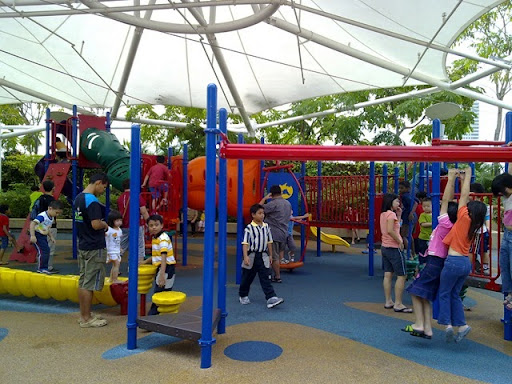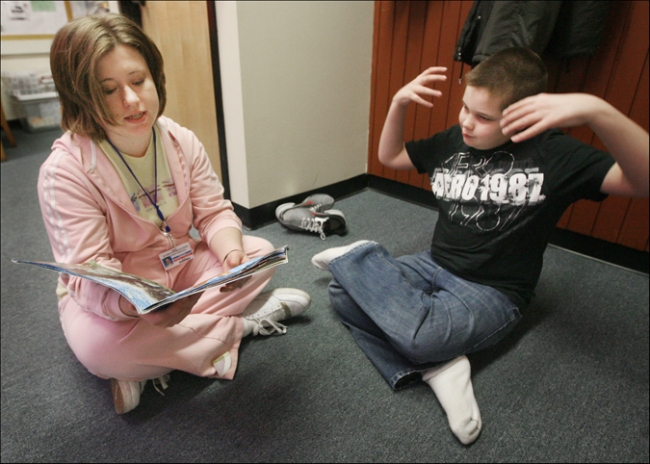
Autism is a condition that affects the brain and nervous system of a child in the first three years of life. In other words, children who are autistic have a different way of looking at the world. Their perceptions of minor things differ as well. These children behave differently in social settings, and have learning and communication problems. They tend to become violent occasionally. However, what parents need to know is that these outbursts are usually not intentional and such responses are triggered by external factors. Behavior issues in autistic children can be controlled with a bit of tact and patience. Let’s take a look at some effective strategies.
Understand the child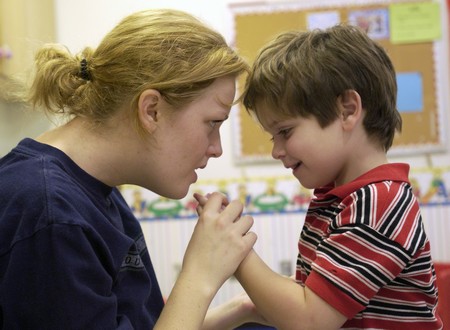
Although autism affects the brain and nervous system in all autistic children, the condition manifests differently in each. Every autistic child is unique and has his or her own unique behavioral patterns. So, the first step to solve behavioral problem is to understand these children. Get to know what causes them to get agitated and violent, what they like and what they do not. Some autistic kids tend to be extra sensitive to excessive noise and light. Others do not take well to close physical contact with others. The more you understand the child, the easier it is for you to identify the cause of behavior problems which will help you tackle the situation appropriately.
Learn the best way of communicating with the child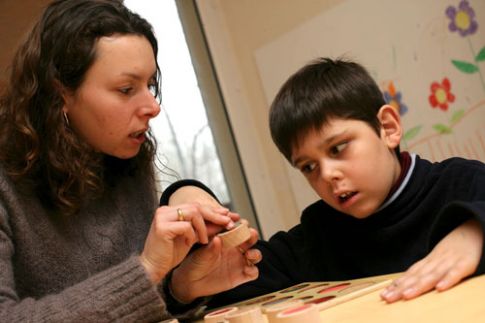
When it comes to autistic children, parents and guardians need to be the learners. They need to adapt themselves to the behavior of the child. Since autistic children have a difficulty in communicating, you should take steps to figure out ways in which you can get to communicate your points clearly to the child. You cannot usually do it in the normal fashion. You might have to be more expressive, involve body movements or give a lot of sensory inputs. Also, these children have typical reactions to certain stimuli. So, observe the child and relate behavioral patterns to specific stimuli. It will help you communicate better with the child and in the process, solve several behavioral problems. Do not bring variations in your communication pattern. Autistic children do not understand variety. It confuses them.
Use sensory inputs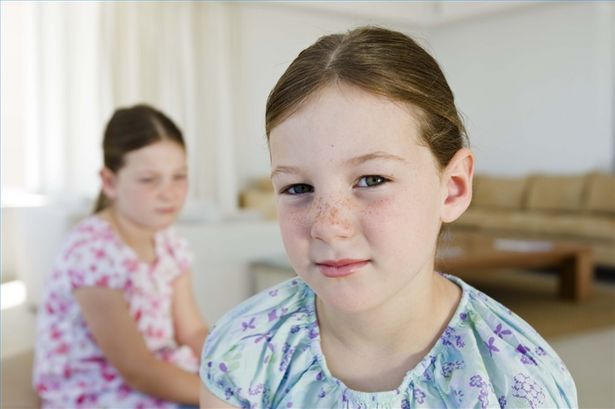
One of the best ways to handle behavioral problems in autistic kids is by using sensory inputs. These can be as sensory input toys or human behavior. According to experts, the best sensory input that you can provide to an autistic child is a bear hug. Most of them find physical contact very soothing and calming. Fidget toys are great tools for controlling aggression in autistic kids. Also called stress toys, these are extremely de stressing. Some of the best toys are squeeze toys, sensory bars and spiked massage equipment. Sensory inputs as human behavior includes squeezing the child between pillows, playfully rolling them in blankets, bouncing on a trampoline and covering them with quilts. These have provided very positive results.
Be practical and realistic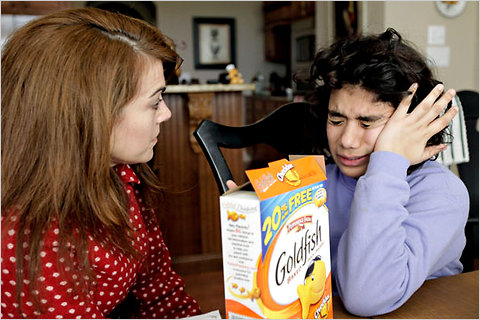
Autistic children behave differently, they do not necessarily behave badly. So, do not get worked up if your child flaps his hands, circles on the spot or rolls on the floor. This is “normal” behavior for an autistic child. Do not compare him with other kids. If you calm yourself down and do not stress over every small activity that might be considered ‘abnormal’ for some kids but not abnormal for an autistic child, you will find it much easier to deal with an autistic child’s behavior problems. If the child is not hurting himself or causing damage or hurt to others, just let him be. An autistic child usually misbehaves when he is taken to a new place or when he meets new people. Trying to be excessively controlling of an autistic child aggravates his aggression. Be realistic and practical.
Therapists are very helpful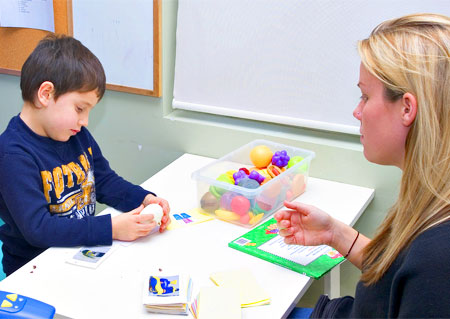
Autistic children usually cannot learn things on their own or when taught in the normal manner. They need to be taught differently. So, you should have a therapist for your child. As a child learns social skills, his behavior is more controlled. Autistic children suffer from something called “mental blindness”. This refers to a condition in which a person cannot read another person’s mind. He cannot make out what others think and so, they unintentionally end up doing things that cause harm to others. A therapist can help in this regard and train them in skills that can help social behavioral patterns in autistic children so that their mental blindness does not become very debilitating. Group therapies are also very effective in bringing a positive change in an autistic child.
Channel the child’s energies in the right direction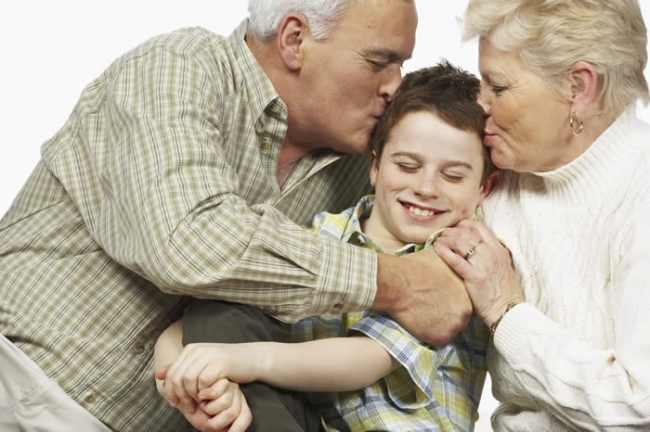
This is a very important aspect of controlling behavior problems in autistic kids. As a parent or a guardian, you know what kind of behavior problem the child portrays. Does he climb walls and furniture? Take him to a recreation center, which has a climbing wall. You can also take him to parks which have climbing games and ladders. However, make sure that the child is well protected against sustaining any kind of injuries. If your child likes throwing things, have a basketball ring fixed on the wall in your courtyard and encourage him to throw a ball into it. Encourage and appreciate the child when he throws the ball towards the rink but be stern when he throws other things at home. He should understand that it is only right to throw a ball. Since each autistic child depicts different behavior, find an outlet for that energy in a positive manner.
Reward for positive behavior, never use physical force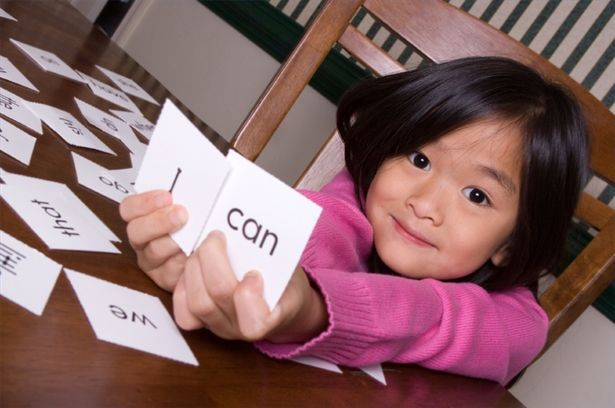
Never use physical force such as hitting, in an attempt to discipline your autistic child. An autistic child cannot understand that his behavior is wrong if you hit him when he behaves differently. He is either confused or decides that hitting is an accepted practice. This understanding can be disastrous. Even worse, he might take to inflicting self injuries. Slapping and biting oneself are common in autistic kids. Instead of hitting him when he does wrong, discourage him by speaking in a stern manner. On the contrary, be exuberant in your praises when he does something right. Reward him with a huge hug or some article that he likes. Make sure that he understands that you are rewarding him. The tone of your voice, the huge smile on your face, make him understand the positive gesture.
Be consistent in your disciplinary efforts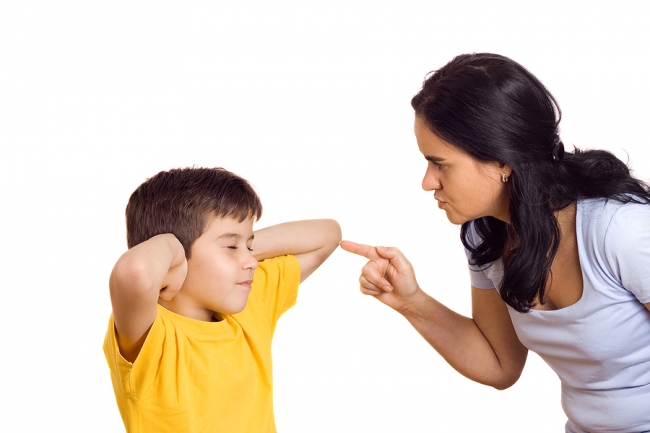
An autistic child is poor in making connections between different environments and people. For him, when environment changes, rules of disciplined behavior no longer apply. So, although he knows that hitting friends in school is wrong, he cannot comprehend that hitting siblings or parents at home is wrong. So, you have to keep disciplining him every time he commits a mistake. Unlike normal children, autistic children do not misbehave intentionally. They do it because they do not know that they are doing wrong. Consistency in disciplining is also very important. If he is punished in a particular manner when he does a particular mistake, he should be given the same punishment every time he makes that mistake. Varying punishments clouds his mind and confuses him, which might make him aggressive. Patience is the key when dealing with autistic kids.
Discipline and react immediately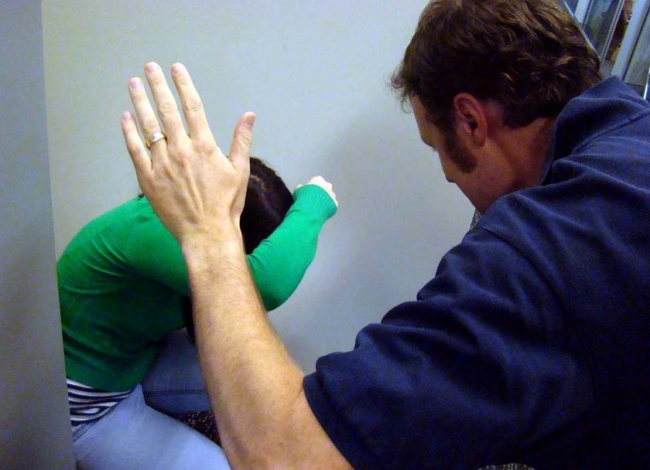
It is very important that you react immediately to the situation with an autistic child. If he misbehaves, discipline him immediately. Have him say sorry and when he does, appreciate him by hugging or high five`ing’. Postponing both punishments and praises are useless since autistic kids cannot make the association. The different punishments that you can use are sitting the child in a corner, keeping him away from his favorite toy or not talking to him. However, do not prolong the punishment too long. Ensure that he understands when he is being punished and when his punishment is lifted due to his good behavior. As mentioned above, do not use physical force as punishment.
Create a suitable home environment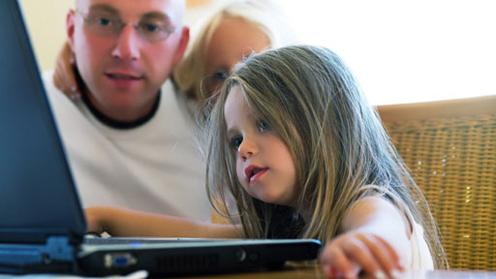
Lastly, the most important thing that you should do is to create a safe home for the child. Although this does not solve behavioral problems, it ensures that the child is not hurt when he behaves differently. Despite your best efforts, autistic children do have tantrums and when they do, they become aggressive. So, make efforts to increase safety in your house. Make sure that you do not decorate your home with breakable things such as glass. Fix latches on every door, fix a dead bolt on your main door and keep cabinets locked. Do not use freestanding cabinets. Have them fixed to the wall. For enhanced safety, change all glass fixtures and replace them with plexiglass. This is shatter resistant. So, while the visual beauty of your home is retained, you can be assured that your autistic child is not hurt.




